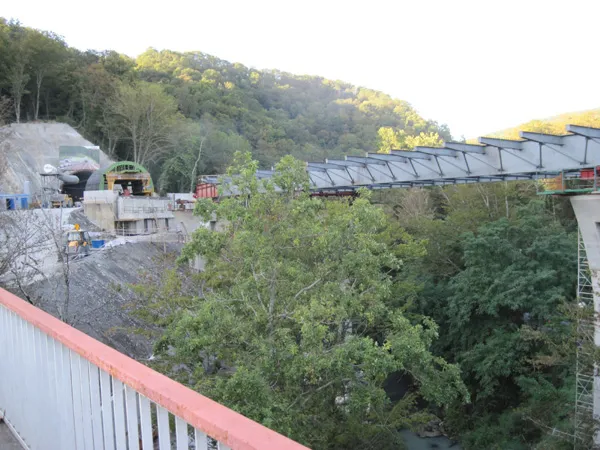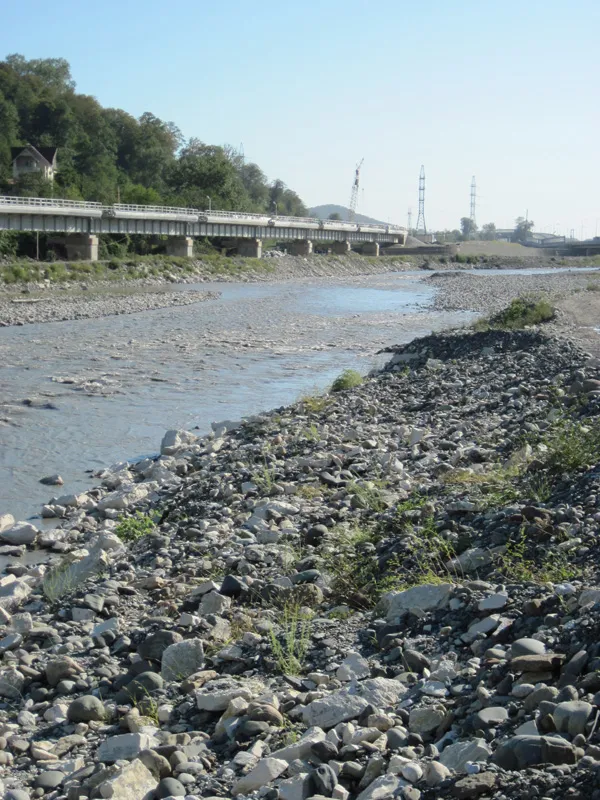Construction of the proposed Sebes-Turda motorway will start by the end of November, according to Eugen Cecan, director of Romania’s Regional Administration for Roads and Bridges.
Cecan made the announcement in Cluj, the second most populous city in Romania after the capital Bucharest and considered the unofficial capital to the historic province of Transylvania.
Cost of the 70km project is around US$500.34 million (€400 million), with 85% coming from the European Union as grants and the central gover
November 7, 2014
Read time: 2 mins
Construction of the proposed Sebes-Turda motorway will start by the end of November, according to Eugen Cecan, director of Romania’s Regional Administration for Roads and Bridges.
Cecan made the announcement in Cluj, the second most populous city in Romania after the capital Bucharest and considered the unofficial capital to the historic province of Transylvania.
Cost of the 70km project is around US$500.34 million (€400 million), with 85% coming from the1116 European Union as grants and the central government investing the remaining 15%.
Cecan said the motorway will be completed by March 2016 and run north from Sebes, with a population of around 25,000, to Turda with a population of 45,000.
Sebes is at the crossroads of two main highways in Romania: E68 European route - DN1 coming from Sibiu and going towards Deva and E81 European route - DN7 coming from Sibiu and going towards Alba-Iulia and Cluj.
Construction work on the motorway is split into four contracts, awarded last year.
Lot 1 – 17km from the highway entrance near the interchange with the A1 motorway at Sebeș to Paraul Iovului – was awarded to the Italian consortium7809 Salini Impregilo at a cost of nearly $151 million (539,488,704 lei).
Lot 2, around 24km from Paraul Iovului to Aiud, was awarded to an Italian-Romanian consortium that includes RCM Costruzioni, Shelter Construct and Eurocerad International for nearly $128.5 million (460,019,270 lei).
The 12.5km Lot 3 section from Aiud to the Decea interchange is being built by the consortium of Tirrena Scavi and Societa Italiana per Condotte d'Acqua at a cost of cost of $117.5 million (420,511,921 lei).
Lot 4, around 16km from the Decea interchange to the interchange with the A3 motorway near Turda, was awarded to the Romanian division of3976 Porr Group, Porr Construct SRL, German division Porr Bau, for a cost of $131.4 million (470,004,894 lei).
Cecan made the announcement in Cluj, the second most populous city in Romania after the capital Bucharest and considered the unofficial capital to the historic province of Transylvania.
Cost of the 70km project is around US$500.34 million (€400 million), with 85% coming from the
Cecan said the motorway will be completed by March 2016 and run north from Sebes, with a population of around 25,000, to Turda with a population of 45,000.
Sebes is at the crossroads of two main highways in Romania: E68 European route - DN1 coming from Sibiu and going towards Deva and E81 European route - DN7 coming from Sibiu and going towards Alba-Iulia and Cluj.
Construction work on the motorway is split into four contracts, awarded last year.
Lot 1 – 17km from the highway entrance near the interchange with the A1 motorway at Sebeș to Paraul Iovului – was awarded to the Italian consortium
Lot 2, around 24km from Paraul Iovului to Aiud, was awarded to an Italian-Romanian consortium that includes RCM Costruzioni, Shelter Construct and Eurocerad International for nearly $128.5 million (460,019,270 lei).
The 12.5km Lot 3 section from Aiud to the Decea interchange is being built by the consortium of Tirrena Scavi and Societa Italiana per Condotte d'Acqua at a cost of cost of $117.5 million (420,511,921 lei).
Lot 4, around 16km from the Decea interchange to the interchange with the A3 motorway near Turda, was awarded to the Romanian division of









